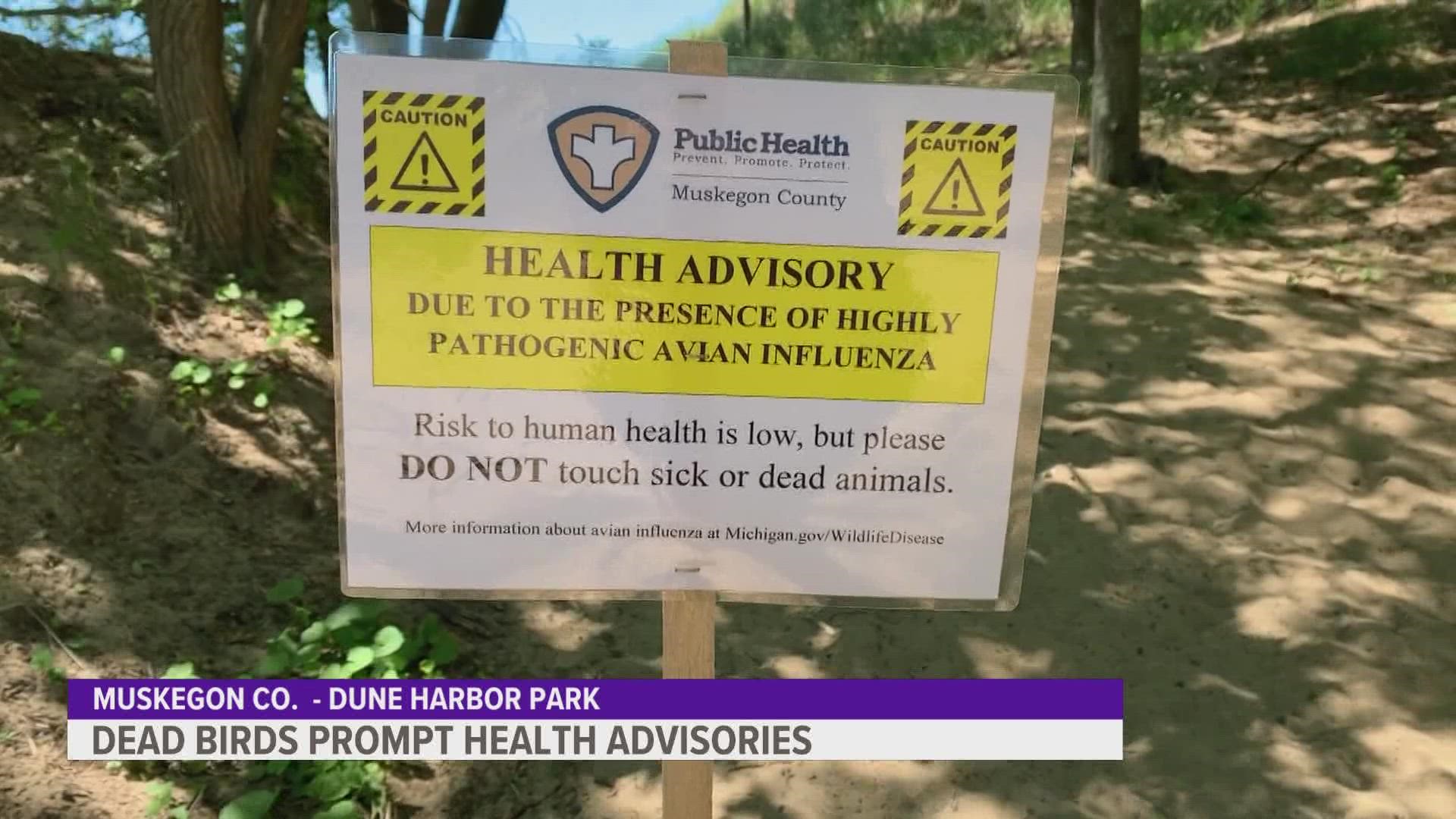MUSKEGON COUNTY, Mich. — Public health advisories were posted at the entrances to a Muskegon County Park Wednesday amid reports of dozens of dead or dying birds:
“Due to the presence of highly pathogenic avian influenza, DO NOT touch sick or dead animals.”
At least one of the cormorant deaths recorded at Dune Harbor Park was confirmed to have been caused by highly pathogenic avian influenza.
The assumption is that it's also behind the dozens more encountered by county staff and visitors to the park.
Dune Harbor is home to a cormorant colony the Michigan Department of Natural Resources estimated comprised several hundred birds.
Their nesting behavior—clustered in close proximity to one another—allows the illness to be transmitted among the population at large.
13 ON YOUR SIDE asked a DNR biologist about potential concerns regarding the impact on human health.
“Generally, the risk is not real high,” Wildlife Biologist Nik Kalejs relayed. “There has been at least one instance I know of where avian influenza was transferred to people. This was in a situation where someone was constantly working with infected birds. But the takeaway message for sure is, you don't want to be handling them unnecessarily. That's just common sense.”
The County asked visitors to consider remaining on the trails at Dune Harbor until the die-offs were contained.
Several viewers asked whether the lake foam contaminated with PFAS may be responsible for the deaths.
13 ON YOUR SIDE asked the Michigan Department of Environment, Great Lakes and Energy for clarification and received the following response:
“PFAS can bioaccumulate over time in wildlife just like humans, but it is not associated with acute illness or sudden death in wildlife.
In other words, if the foam contained PFAS it would not be immediately toxic as the photo might suggest (if that is a bird in the foam).
EGLE typically only samples foam for PFAS when it is near a known source of PFAS contamination.”
If you see dead or dying wildlife, don’t approach it.
Instead, report it to state wildlife officials via the DNR’s Eyes in the Field website.
►Make it easy to keep up to date with more stories like this. Download the 13 ON YOUR SIDE app now.
Have a news tip? Email news@13onyourside.com, visit our Facebook page or Twitter. Subscribe to our YouTube channel.

